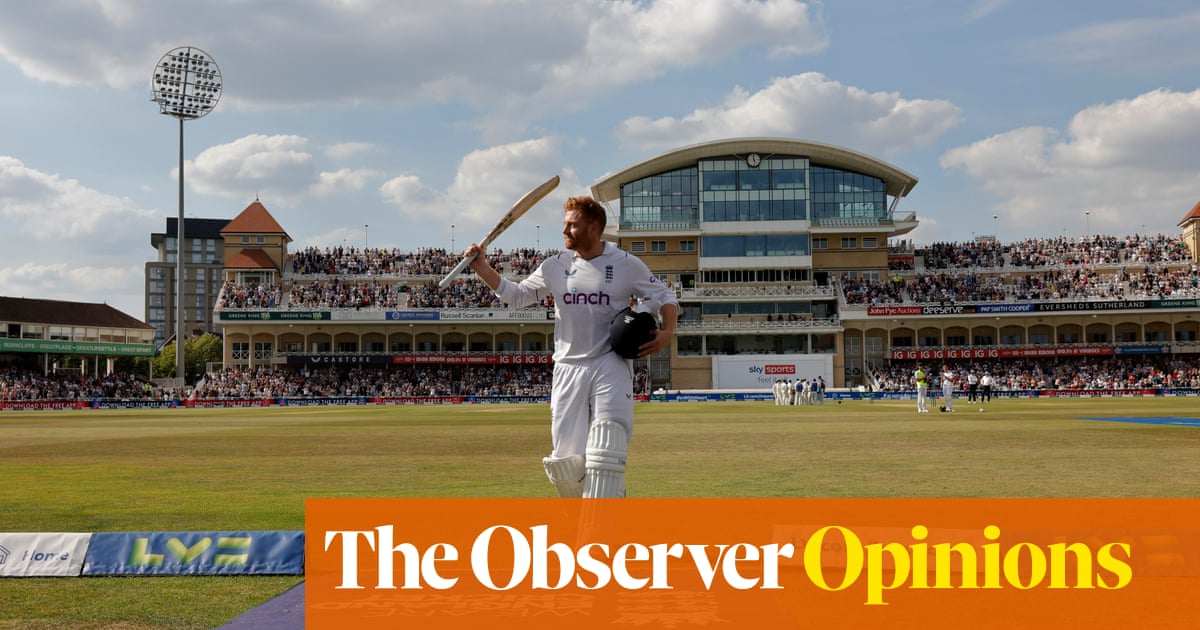Time to end ECB spin and give English cricket the governing body it deserves | Barney Ronay - 4 minutes read

“The world keeps on ending, but every year new people too dumb to know it show up as if the fun’s just started.” John Updike’s creation Harry Angstrom, antihero of the Rabbit novels, may have been musing on life as a weary middle-aged car salesman in rust‑belt America. But he could just as easily have been speculating on the fate of English cricket down the years: a sport that is always in crisis, that is always dying, that has been dying in some form since the day it was born.
That drum has begun to beat a great deal louder in recent years. And with feeling now as the usual notes of doom coincide with genuine contraction and decay, the disappearance from schools, the marketing surveys that rank cricket just below lacrosse and eating sand in lists of favourite activities; along with hard, inconvertible evidence of racism, elitism, exclusion, a monoculture sealed behind its high garden wall. At what point do we reach critical mass?
For all the minor chords, there is something else here. As the current season revs on into high summer, as the crowd basks and boozes at sold-out Blast games, as Test cricket begins to stretch out into the corners of the non-football summer, as the Hundred promises a first full season of new things and new sound (plus heavy marketing and cheap tickets), it is hard not to conclude that for a dying sport this thing is very much alive.
The Guardian and Observer sports desk has commissioned a series of articles exploring the current state of English cricket. While a note of alarm will always be present, just as striking is the depth of will to preserve this game, the sense the game itself is good, that its struggles are in many ways structural and self-imposed. Are we really confident the England and Wales Cricket Board is best suited to solving them?
It is time to have this discussion. The ECB has no chief executive or chairman. Its driving force of the last few years has been Tom Harrison, who kept the lights on, but also oversaw a major racism scandal, the managed decline of red-ball cricket, who took a vast personal bonus out of the game and has alienated many traditional (this is not always a bad word) cricket supporters. Is the ECB, as constituted, still fit to address the issues? Are we happy with it? Do we need to dissolve it and find something new?
This is not a fanciful suggestion. It is easy to forget the ECB is a relatively new thing; and that the counties are not simply its subjects. The counties underwrite and endorse the ECB, not the other way round. It is a construct, with a defined role at the top end of English cricket administration, but with no deep cultural roots.
Franchise cricket is the coming power. The ECB’s golden goose, the England team, with its cycle of settled satellite broadcast rights, is no longer the key driver of future income. The ECB knows this better than anyone, hence the first-idea-is-a-good-idea rustling‑up of the Hundred. And hence in the middle of this altering landscape we have a situation where moves the ECB makes often feel designed to promote and preserve the power of the ECB, as opposed to the health and spread of what other people might recognise as “English cricket”.
Does the ECB, a body obsessed with instant growth, eyeballs and revenue streams, really understand what is required? Because those needs have changed. The real priority for English cricket as a whole is not to wring a little more money out of its broadcasters, but to preserve and spread and find a way to share (not sell) a sport that has already cashed in its captive ancestral audience.
These are no longer side issues to be managed by spin and puff. They are critical to survival and in need of a dedicated, expert hand. The ECB has tried to address all of these with an eyewash of gimmickry and slogans. But at bottom it is run by marketing people for marketing purposes. It cannot solve these problems or find a way to do so that isn’t, also at bottom, an act of salesmanship.
Any new governing body will also need to engage properly with India. The ECB has always had a cultural fear of being cut out and overshadowed by the Board of Control for Cricket in India and the Indian Premier League. But it is necessary to understand that India’s power centre is simply the reality, that things such as the IPL’s annihilating new rights deal are good for cricket, because this is where cricket is now, that the English game must face that way, a feature of and satellite to this mega-league, not its jealous maiden aunt.
Source: The Guardian
Powered by NewsAPI.org